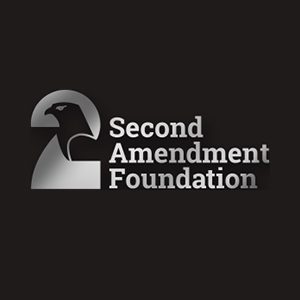
All of our natural rights enshrined in law in the Bill of Rights carry equal weight. No singular right is more or less important than another, and more importantly, none of the rights require a special qualification to exercise. That is why they are called ‘natural rights’ – they are enjoyed equally and are to be equally exercised by all citizens.
Except for one, it seems.
A common anti-gun argument (that even some on the right entertain) is the assumption that because the right to keep and bear arms comes with potentially deadly consequences, it requires some sort of moderation in the form of a qualification to make sure “you’re responsible enough to use it.”
This is erroneous thinking that must be unequivocally rejected, and it also undermines the power of your other liberties.
In modern times, the right to bear arms is primarily exercised as a defensive right by most people, well-documented by now-buried FBI statistics that evidence 1.5-2.5 million defensive gun uses every year, the vast majority of which don’t involve a shooting. However, the right to keep and bear arms may also righteously be used in an offensive manner to proactively protect life, go to war, and even topple a tyrannical government.
Is this the only right that carries such gravity of consequence?
Far from it. Consider one of your First Amendment rights: free speech. The unparalleled power of words has long been acknowledged by thinkers and leaders throughout history. In 1839, a nineteenth-century playwright, Sir Edward Bulwer-Lytton, penned the famous line, “the pen is mightier than the sword.” Prior to that, Roman statesman and philosopher Cicero, in his De Officiis (44 BC), declared ‘cedant arma togae,’ roughly translated as, ‘arms give way to persuasion.’ The biblical proverb famously says, “Death and life are in the power of the tongue, And those who love it will eat its fruit” (Proverbs 18.21).
Are these sentiments just colorful metaphors? No! Words cause nations to go to war. Arguments or verbal attacks can incite murder. A judge or jury, by pronouncing their sentence, can cause a person to be put to death. Conversely, words save lives: a warning about a severe weather event; an observation from a doctor about a potential life-threatening illness; a counselor giving hope to someone who is considering suicide.
Yet, we need no permit, vetting, character check, or government permission slip to wield our powerful freedom of expression through speech. Nor should we.
What about our right to freedom of religion? It’s far more than your right to own a book, express your beliefs, and gather on a particular day of the week. If you think there isn’t tremendous power behind a set of religious beliefs, then you may want to become a better student of history.
And our right to assemble and petition our government? Governments throughout the ages have suppressed people from gathering together. Our Constitution uniquely protects this right. Why? Because there is an inherent danger to a corrupt government when citizens gather – one that carries the potential power of life and death. Think of the French Revolution.
The Second Amendment is not unique in the sense that it carries a grave responsibility that includes the power of life and death. In a way, all of our liberties do. What makes our Constitution and way of life unique is that we carry the personal, individual responsibility to exercise each of these rights with the gravity and seriousness they require.
No, we don’t need to put safeguards on our Second Amendment rights, but we do need to take them seriously.

















